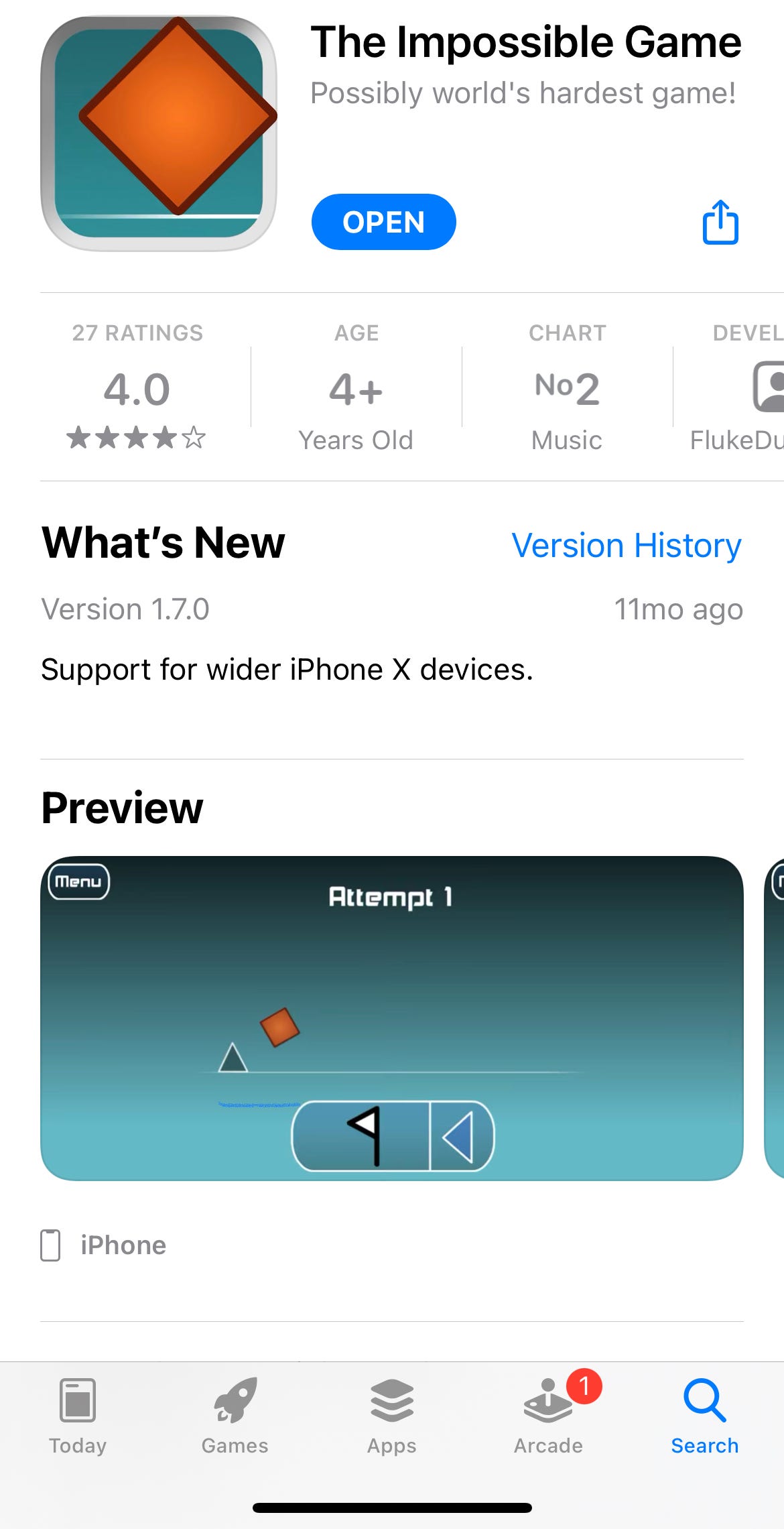Bonus post - the app generation
My post about Chapter 2 - The Smartphone Revolution - mentioned that the iPhone only really started disrupting the mobile phone industry when Apple launched the App Store in 2008.
For a while that sparked a wave of creativity amongst what were called bedroom developers, young solo software engineers who could suddenly reach a huge audience and make substantial amounts of money.
One such story came my way when my son told me about his school friend’s kid brother and his hit app. Here’s an extract from the book:
A friend of my son in West London was a perfect example. 16 year old Edward Bentley made a very simple app called the Impossible Game and offered it first on Microsoft’s Xbox Live Platform. The game, whose graphics were almost laughably basic, involved manoeuvring an orange block past innumerable obstacles and, like another simple game Flappy Bird a few years later, it proved extraordinarily addictive.
Its creator then reworked it for the iPhone and went through the approval process of getting it accepted for the App Store. Once again, it quickly won a big audience.
A little while later, Edward’s father answered the phone one evening. He was bemused to hear from an Apple executive in the United States that his game had been chosen as “App of the Week”. Edward had given his dad’s name when registering the app because the rules said you had to be 18 or over.
Eventually, the Impossible Game got to number two in the US App Store chart and Mr Bentley senior had to open an American bank account to accept the six figure sum which his son had earned. A decade on, after getting an engineering degree from Cambridge, Edward was working as a software developer - for Apple in Shanghai.
Stories like this quickly became rare as the App Store was dominated by giant players with the marketing muscle to stand out from the crowd - companies like Epic Games, maker of the hit game Fortnite. Epic is currently waging a court battle against Apple over the tight restrictions it imposes on the App Store and the high rate of commission it extracts on payments made within apps. And there are huge amounts of money at stake - in 2020 customers spent a total of $72 billion on iOS apps according to one estimate.
As for the Impossible Game, more than a decade after it made its debut in the App Store this very unsophisticated game is still there - and I hear rumours that a new version could be on the way. Epic Games will hardly be quaking in its boots but maybe the era of the bedroom developer isn’t over yet.

